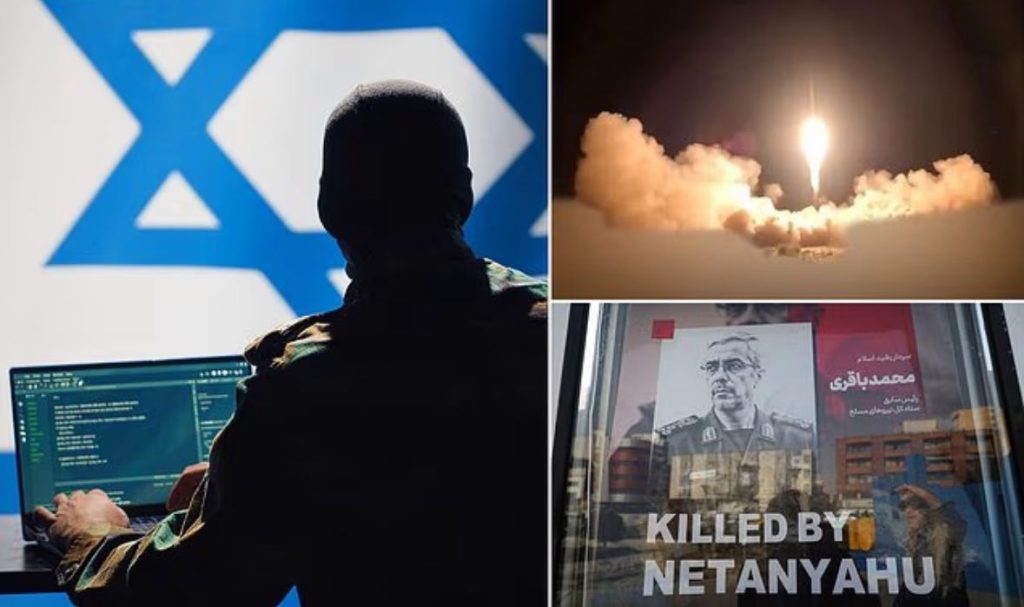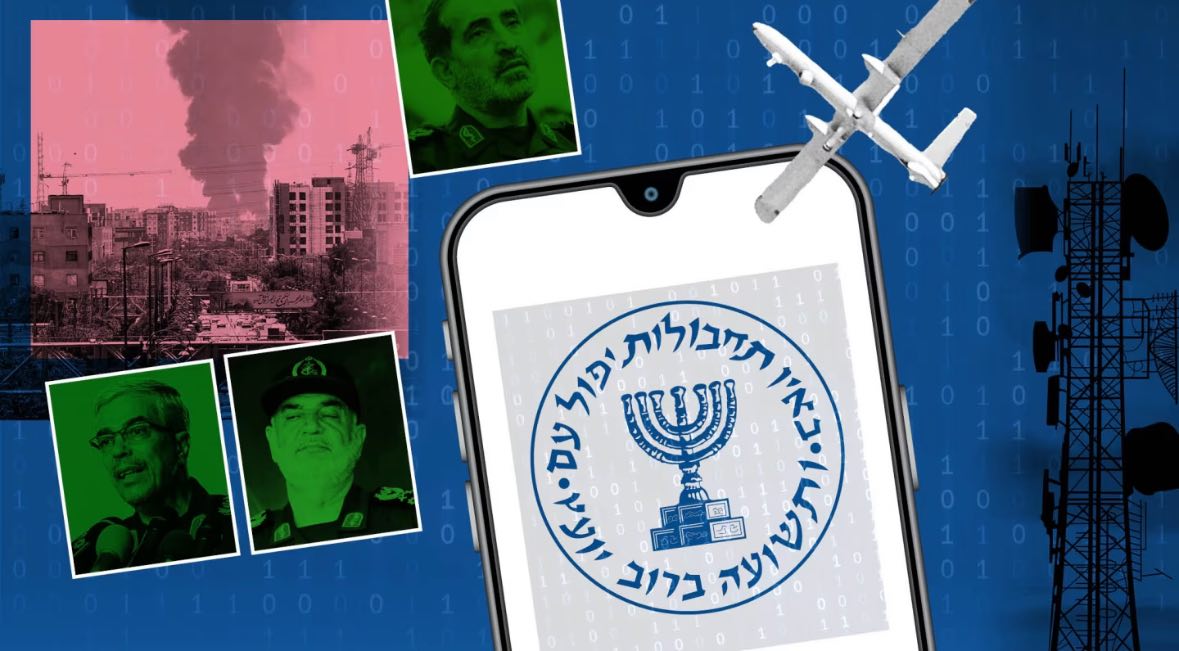Hunting Iranian Spies in Pursuit of Internal Traitors After Israel’s Major Blow
Hunting Iranian Spies in Pursuit of Internal Traitors After Israel’s Major Blow
According to the Iran Gate News Agency, Israel’s intelligence penetration within Iran during the 12-day summer war this year was displayed with unprecedented intensity and scope.
In response, Tehran has simultaneously launched extensive operations to recruit forces and conduct espionage operations against Israel.
This complex and multi-layered competition in the intelligence arena, despite significant differences in impact and scope, has now become one of the most sensitive and tense parts of the confrontation between the two countries, prompting both sides to increase security and media efforts.
The Shadow War: The Intelligence Battle Between Iran and Israel in the Shadow of the Summer War
Israel’s intelligence penetration in Iran during the 12-day summer war of 2025 was unprecedentedly revealed, but on the other side, the Islamic Republic also launched its aggressive campaign to recruit forces and conduct espionage operations within Israel.
Although these two campaigns are not comparable in terms of effectiveness and complexity, the threat level was such that Shin Bet, Israel’s internal security agency, took the unusual step of collaborating with the National Public Diplomacy Directorate to launch a widespread media campaign to warn Israeli citizens about the dangers of spying for Iran.
During the war, it seemed Israel considered Iran as its playground, gathering information from nuclear facilities, scientists, and senior officials through a network of Iranian and non-Iranian sources, and even managed to conduct operations from within Iranian soil.
Drones and missiles launched from deep within Iran towards specific targets in the early days of the war were the result of this intelligence penetration. Some of these Iranian sources even participated in smuggling advanced military equipment designed to weaken Iran’s air defense systems.

In the weeks following the end of the conflict, Iranian security officials launched a wide-scale operation to identify and arrest internal spies, a wave that led to the arrest of dozens in various cities. Simultaneously, Tehran also tried to restore balance in the intelligence arena by activating infiltration networks in Israel, some of which were established years ago.
Although Iran’s activities remain marginal compared to Israel’s level of intelligence penetration, since 2020, Shin Bet has recorded significant growth in Iran’s efforts to recruit Israeli and non-Israeli citizens for espionage.
Unlike Israel’s complex methods, most of Iran’s recruitments are conducted through social media, messaging apps, and online contacts, focusing more on financially vulnerable individuals.
Initially, the missions of recruited Iranians were limited to gathering basic information from military bases, official figures, and posting anti-government posters in public places. On the brink of the war, Iranian officials claimed they had succeeded in obtaining important Israeli nuclear documents.
Ismail Khatib, Iran’s Minister of Intelligence, proudly spoke of complete nuclear files and documents related to Israel’s communications with the West, information which he claimed enhances Iran’s offensive capabilities.
However, the turning point in Iran’s intelligence activities in Israel began in mid-2024.
After Iran’s missile and drone attack on Israel in April and before the October ballistic attack, Iranian forces’ missions entered a new phase, from gathering information to attempts at arson, sabotage, and even the assassination of scientists, journalists, and senior military and political officials. Israeli officials spoke of a significant increase in assassination plots, most of which were identified and thwarted in the final stages.
Some of these plans were devised just nine days after recruiting the forces. In another instance, an Azerbaijani team of spies, active for over two years, was identified when they shifted from gathering military information to following a senior Israeli military commander.
The Center for the Study of Iran’s Foreign Plans at the Washington Institute has so far documented at least 31 planned operations by recruited Iranian forces on Israeli soil.
These individuals, in addition to gathering information on sensitive centers, engaged in drawing graffiti and causing fires in public places. However, these efforts have not yet led to a successful assassination or targeted attack within Israel.
Most recruitments were conducted via Telegram, WhatsApp, and other virtual platforms, relying on financial incentives. Among the 31 recorded cases, payments were often made through cryptocurrency in 20 instances.
Many of the operatives were aware or suspicious of their connection to Iran but did not justify their behavior as full-fledged espionage. While some had simple tasks like posting posters, others participated in more advanced activities like recruitment, sometimes even involving their family members.
One of the most notable cases involved the arrest of a father and son named Basem and Taher Safdi, residents of the Druze village of Masadeh, who sent military information from the Golan region to the Quds Force of the Revolutionary Guards through an Al-Alam network journalist based in Damascus.
One of the most serious cases was the attempt to assassinate Benjamin Netanyahu, the Prime Minister, Yoav Galant, the former Defense Minister, and Ronen Bar, the then-head of Shin Bet, in 2024.
The main suspect, Moti Maman, a businessman linked to Iran and Turkey, allegedly met with Iranian intelligence officials in Ankara and Tehran and was tasked with missions such as identifying Mossad agents for recruitment as double agents and threatening failed Iranian operatives. According to Shin Bet, he received 5,000 euros as meeting expenses before leaving Iran.
In total, the Washington Institute has identified 39 Iranian intelligence plans in Israel from 2013 to 2025, with 31 of them involving Israeli citizens. Some cases included multiple operatives, bringing the total number of involved Israelis to over 45.
Among these individuals, 35 have faced indictments. The age range of the operatives varies from 13 to 73, with more than half in their second or third decade of life.
These individuals were mainly from ethnic minorities like Azerbaijanis and targeted objectives such as the Iron Dome system, government officials, public markets, medical centers, nuclear scientists, and military bases.
Khatib, Iran’s Minister of Intelligence, described his country’s intelligence programs in Israel as part of a broader strategy of internal warfare on enemy soil and emphasized that the Zionists must counter the internal aggression strategy, just as our missile power forced them to stop the war, today their intelligence organizations are forced to hold meetings to counter infiltration.
In response to these threats, the ‘Easy Money, Heavy Price’ campaign was launched by Shin Bet and the Public Diplomacy Directorate, a warning campaign that is broadcast through social media, radio, and online platforms, reminding citizens that even receiving small amounts, especially around $1,500, from Iran can have consequences of up to 15 years in prison.
However, intelligence experts warn that these actions are merely the starting point of a deeper struggle. What has been observed over the past year represents a serious and unprecedented threat in the scene of Iranian espionage in Israel in terms of scope and complexity.
While Israel expands its infiltration networks with precision and structure, Tehran continues to rely on recruiting inexperienced forces through online channels.

